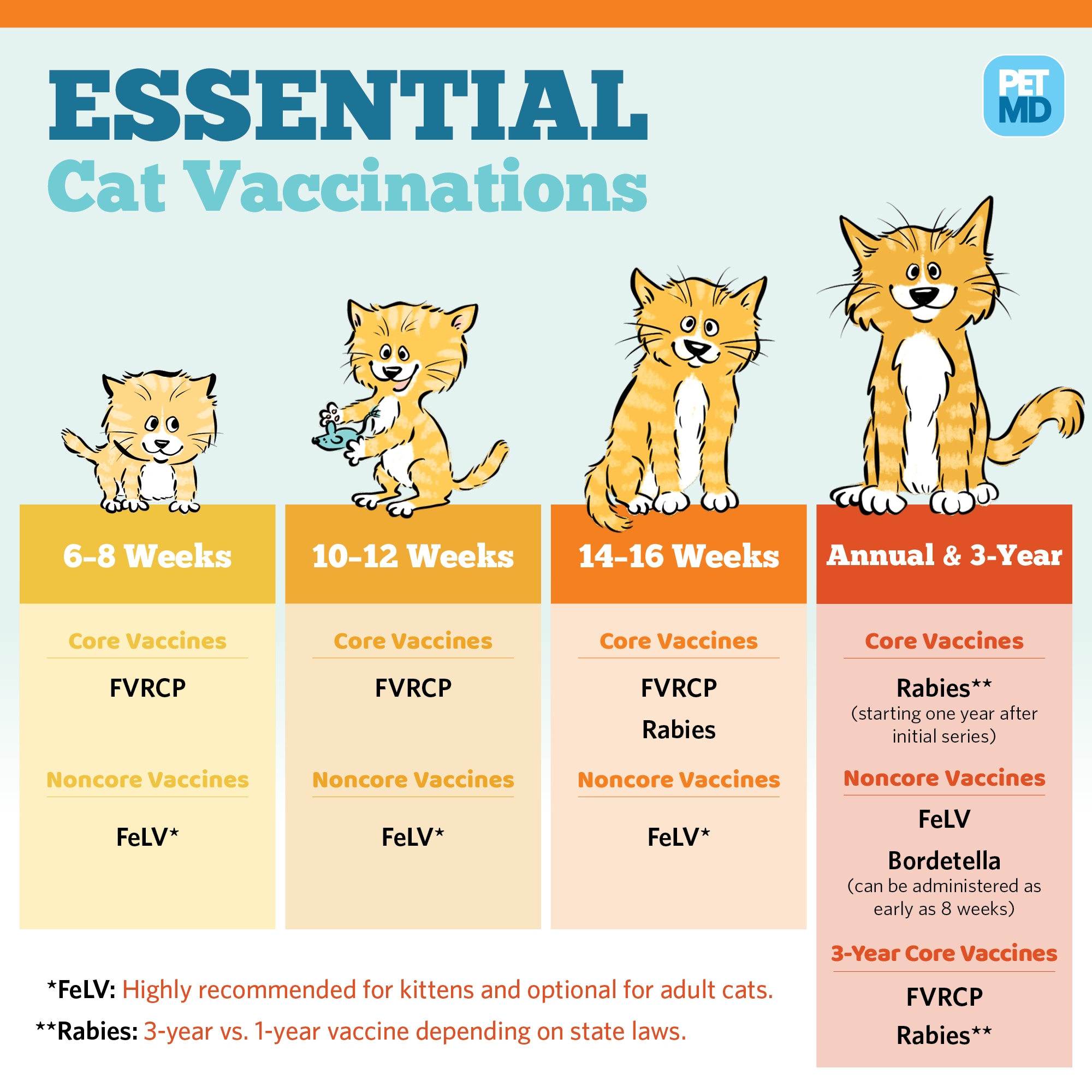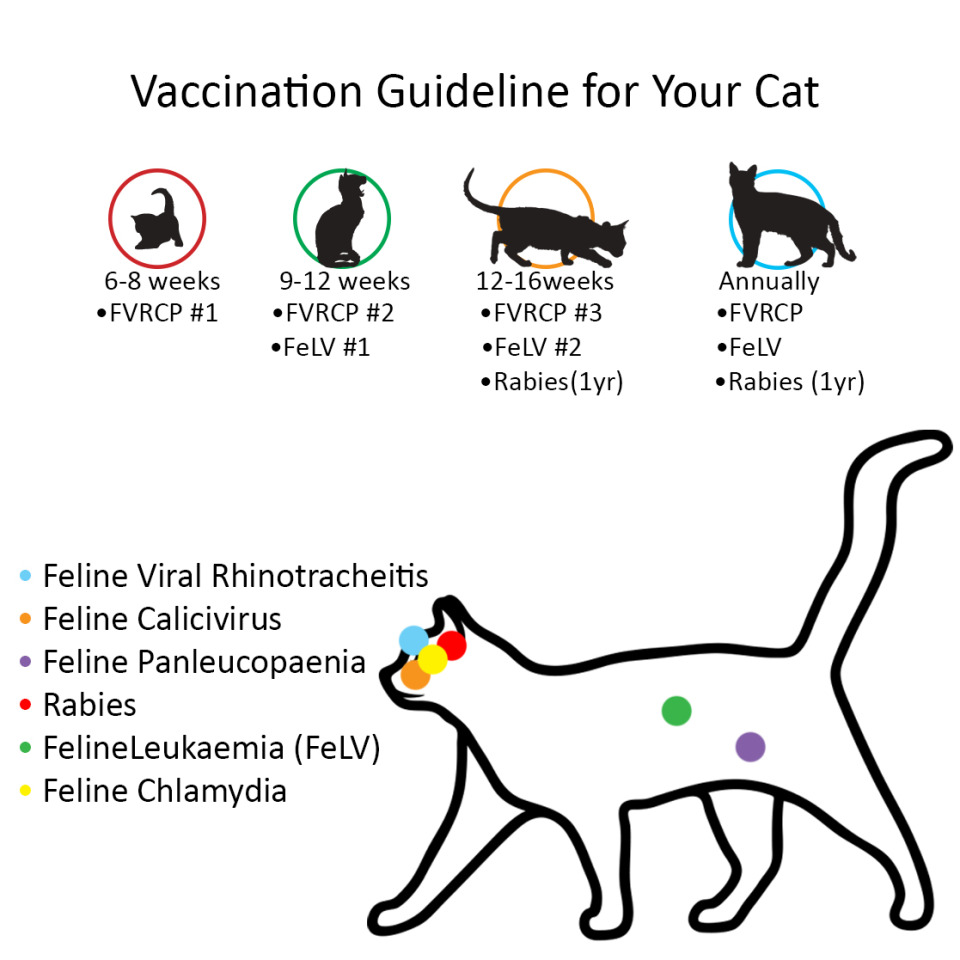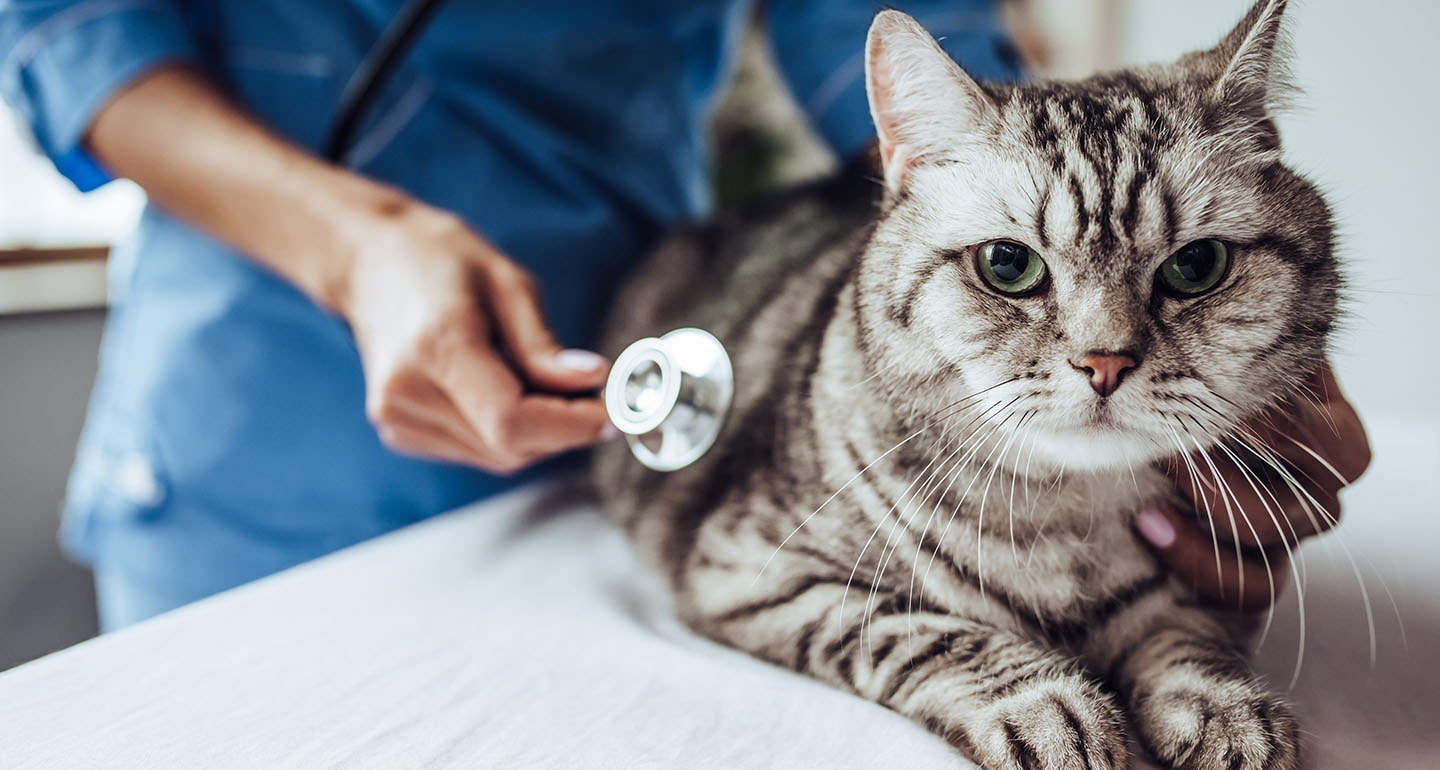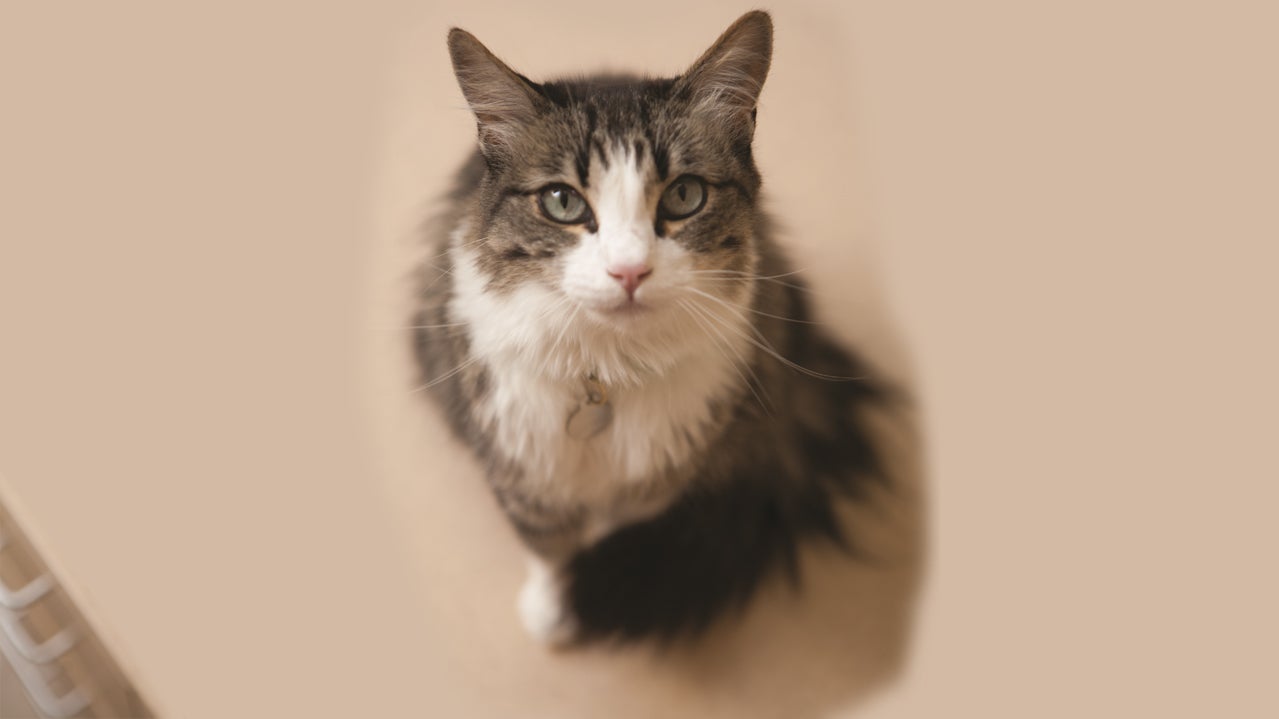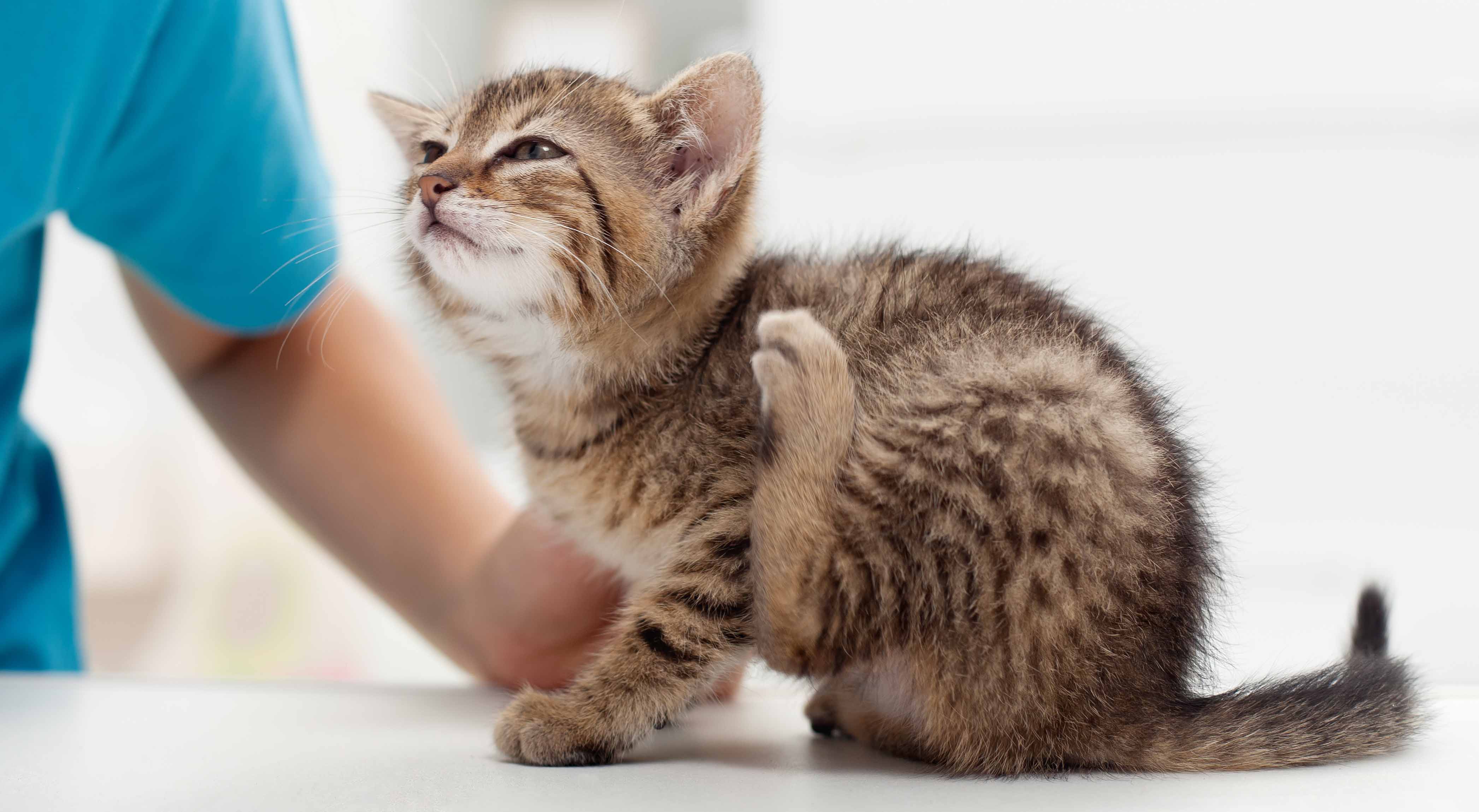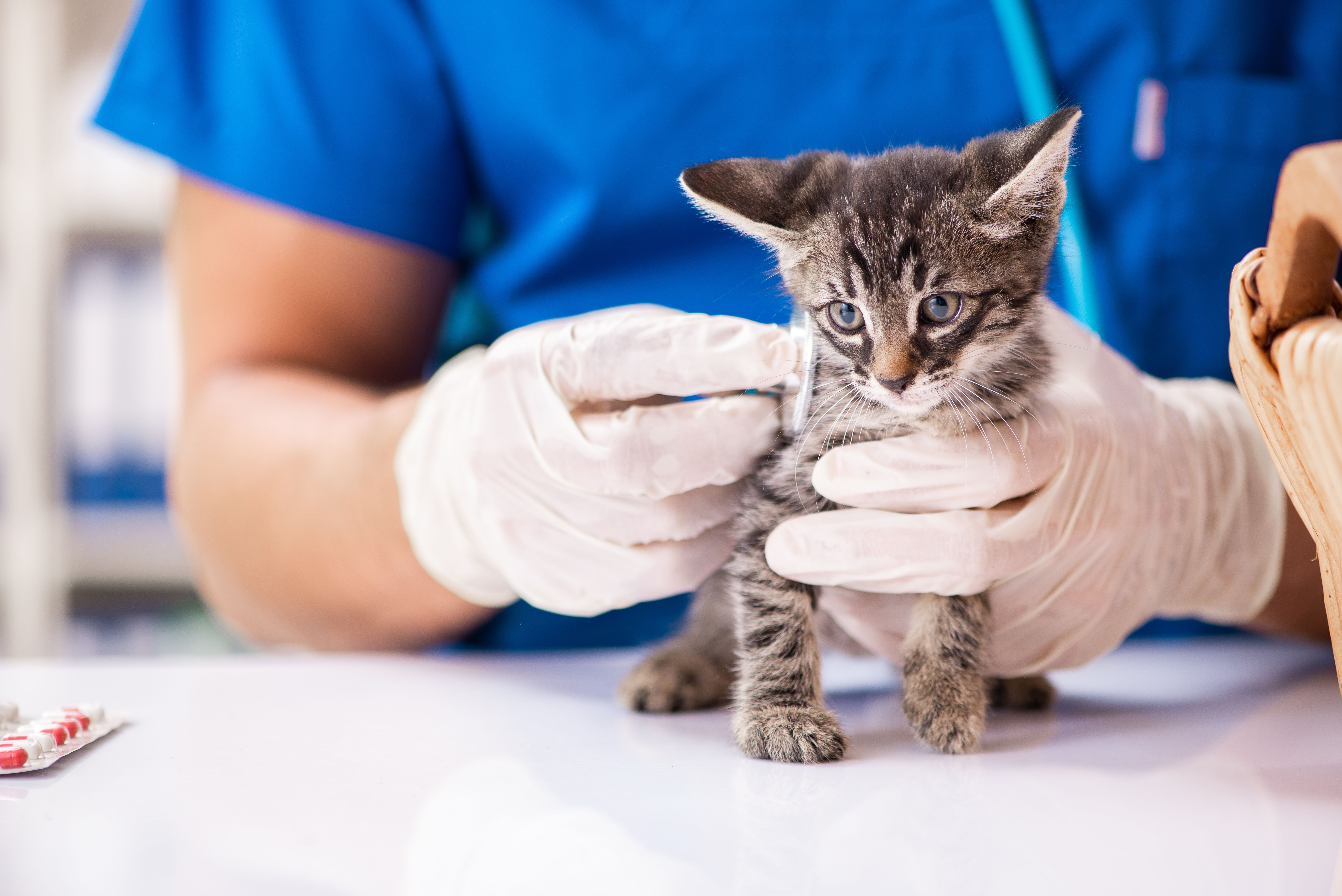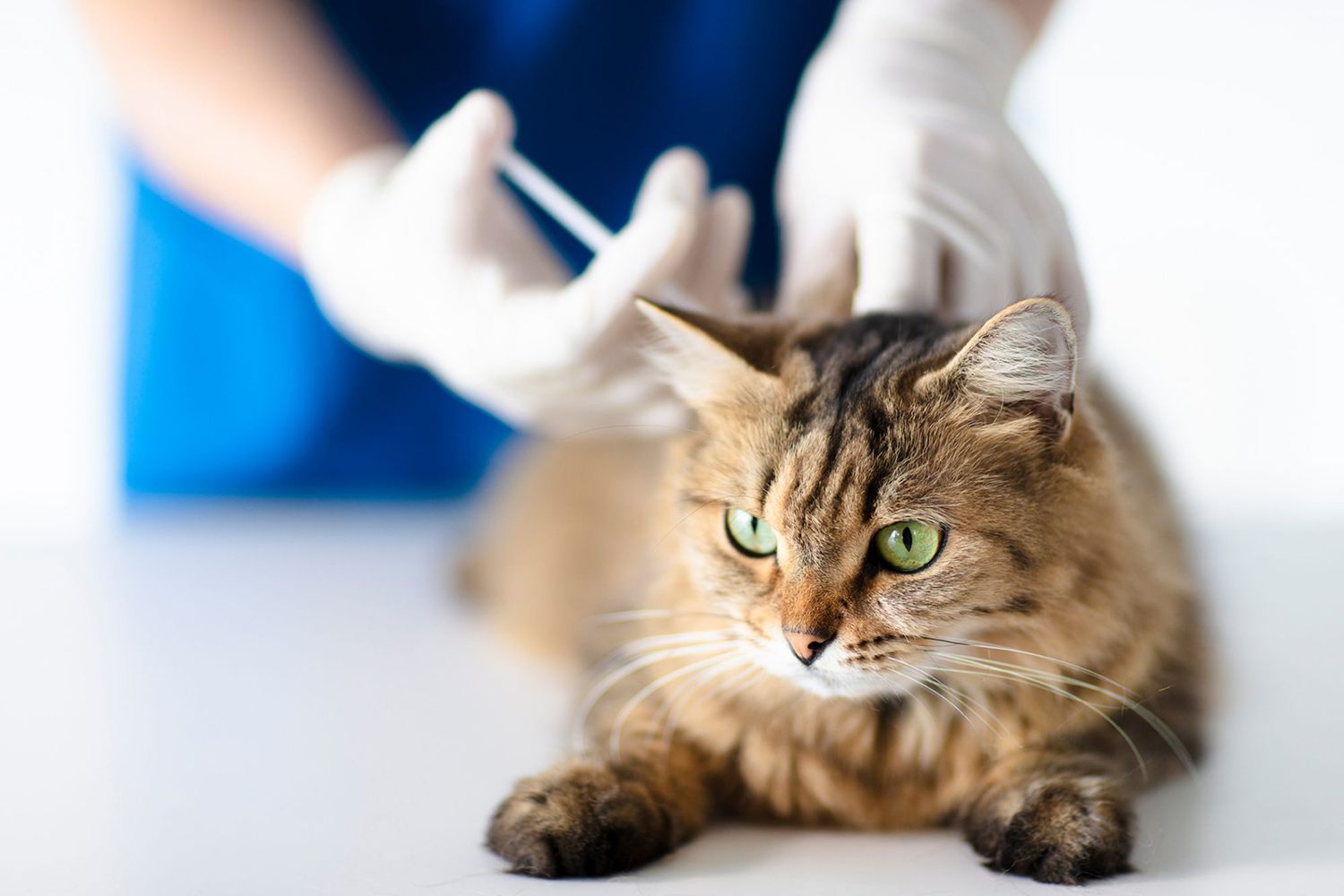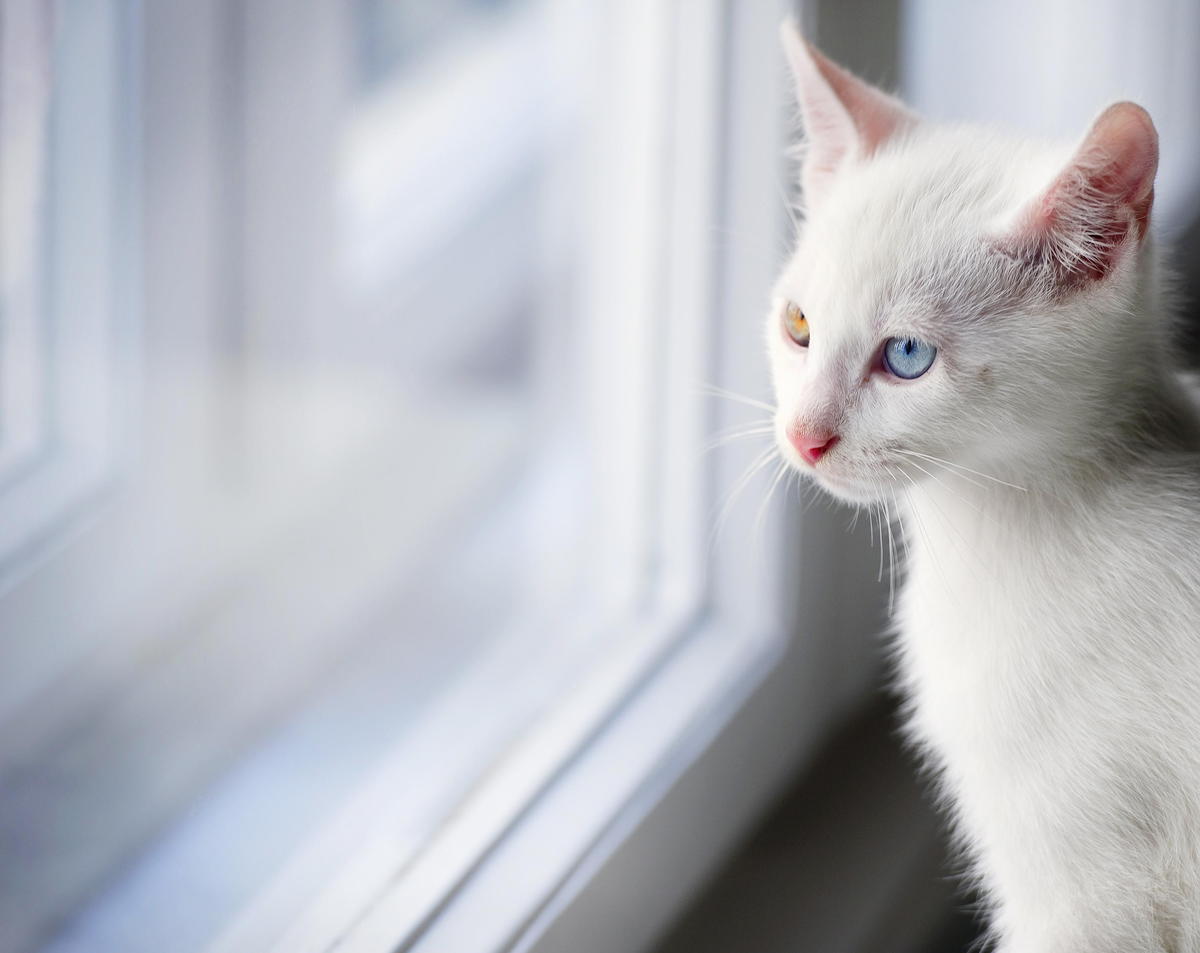Fvrcp Shots For Cats

The FVRCP vaccine for cats is generally given to kittens every three to four weeks until they are 16-20 weeks old.
Fvrcp shots for cats. Whether you adopt your cat as a kitten or as an adult veterinarians recommend the FVRCP cat vaccine and periodic booster shots as part of a cats routine health care plan. Evidence shows that CPV-2a CPV-2b and CPV-2c isolates can. Adult cats should receive a booster once every year or two according to your vets recommendation.
Heres a schedule for your kittens vaccinations from VetCo Clinics. Same day rabies shot and FVRCP booster Cats 8 replies 4-year-old boy shot by 4-year-old cousin in Detroit Politics and Other Controversies 14 replies Two year-old shot to death by four year-old Politics and Other Controversies 32 replies Artificial knee for a 10 year old cat- would you put your cat through this Cats 6 replies. The feline viral rhinotracheitis calicivirus and panleukopenia vaccinations often come in a combination shot FVRCP which is sometimes called the distemper shot Your cat may need extra shots.
Its true that if a kitten is initially given an FVRCP vaccine at 4 weeks of age and gets re-vaccinated every 2-3 weeks then they could receive up to 9 vaccines by 20 weeks of age. The series of vaccines is necessary because it takes a number of booster shots to convince the immune system to recognize the components of the vaccine. FVRCP an acronym for Feline Viral Rhinotracheitis Calicivirus and Panleukopenia is a vaccine so effective at staving off deadly feline viruses that its considered a core vaccine for all cats.
I therefore recommend that all cat owners diligently have their cats vaccinated with the so-called FVRCP at 6-8 weeks 10-12 weeks and 14. Rhinotracheitis calicivirus and panleukopenia more commonly known as distemper. Even strictly indoor cats who do not have exposure to the outdoors may sit by an open window or screen or are exposed to these diseases as.
HESKA Feline UltraNasal FVRCP Vaccine Indications. Cats can be vaccinated with a single dose at 12 weeks of age. This schedule is recommended in a high risk environment such as a shelter or rescue with many transient cats passing through.
Intranasal products can also be used. Nobivac Feline 1-HCP has been shown to block the replication of canine parvovirus CPV in cats 1. After a booster at 6 months to one year revaccination is suggested every.
